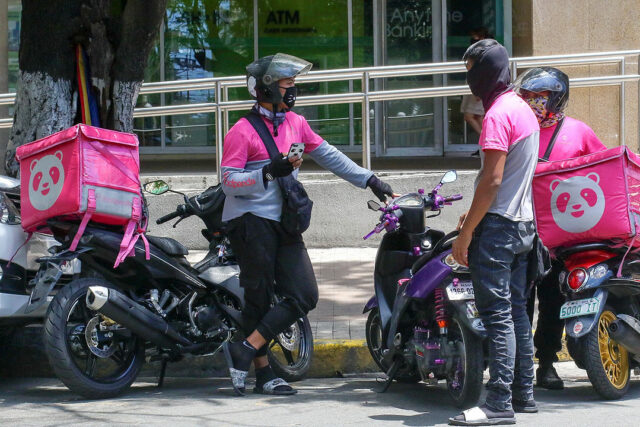Winds of change
The world under heaven, after a long period of division, tends to unite; after a long period of union, tends to divide. This has been so since antiquity. — Luo Guanzhong, Sanguo Yanyi
As we contemplate the meaning of Christmas two millennia after our Messiah was born in a humble manger, we also come to observe that nothing is really constant except change. Over the ages, the world has experienced recurring plagues, economic upheavals, revolutions and wars, despite best efforts of the authorities to minimize or avoid them. Recently, as a response perhaps to their handling of the economy, social issues and geopolitical tensions, the Democratic party widely lost its mandate to the Trump-led Republican party in the US elections. Trump astutely rode a red wave by promising struggling Americans a brighter future, and is set to chart a widely different course when he assumes office in January.
Meantime, on the other side of the ironically named Pacific Ocean, China is also facing dire straits due to an aging population, spiraling deflation, widespread real estate bust, shrinking export markets, decoupling by western partners, and worsening diplomatic relations with neighboring countries. While the Chinese have no option to change their government now, Xi Jin Ping and the ruling Party have made some policy adjustments. Whether such is enough, however, is never guaranteed.
The Philippines is a mere a pygmy in comparison to these two behemoths, and inevitably, caught in choppy waters stirred by the two superpowers. Thus, the Philippines is not spared some economic malaise due to the weakening of China, its most powerful neighbor and trading partner, and the social and political issues that somewhat echo those of the US, with which it shares significant cultural and political ties.
Nonetheless, as the roll of the dice would have it, the Philippines has a young and dynamic population, a consumption-led and demand-driven economy, and a democratic government that allows it to be more resilient in the face of changes. And these may be the reasons why the country is not only surviving, but apparently still growing — like the proverbial bamboo, Filipinos continue to sway, buckle and spring forth time and time again in the face of repeated difficulties or disasters. And, while not to the liking of many, Filipinos can also change sides easily, like a balimbing.
However, I believe that those very traits, while making the Philippines resilient, do not contribute much to the country’s development. Historically, the country has only made very slow and painstaking gains, while any further progress appears to be even more daunting and difficult.
The national debt has now reached P15.89 trillion, and despite the government’s attempts to manage its deficit levels, the Philippine budget gap is expected to grow to 5.9% of the gross domestic product (GDP) next year, according to BMI Research. And while this is still manageable, the country will continue to be hounded by persistent inflation, and available resources and funds for critical investments and infrastructure will become even more scarce and difficult to secure.
Hurdling these constraints is a huge and difficult challenge. At the same time, the dangers of a geopolitical storm carrying the Philippines along with it cannot be understated as well. Great powers are not only dangerous at their peak, but even more so when declining. Examples are not only numerous, but almost repetitive: Spartans, Persians, Romans, Mongols, Dutch, Spaniards, British, Germans, Japanese, and Russians, among others, embroiled others in ruinous competition or wars as their powers waxed and eventually waned. Now it is the turn of the US and China, as the US struggles to keep its strength and prosperity, while China desperately scrambles to uphold the dream of Great Power status it has painstakingly cultivated for decades.
For the Philippines, it will take much prudence, effort and determination, not only on the part of its leaders, but also its citizenry, to face these challenges and threats. Even as a small country, we can husband limited resources by avoiding waste, division and corruption to the extent possible. We can ill afford internal conflict, which not only stymies peace and development, but also weakens the country before the eyes of everyone else.
Every new year offers a fresh start, and I believe that despite existing disadvantages, Filipinos possess innate patience, talent as well as steadfast faith in the Almighty. These qualities will help steer our course for a better future. Ultimately, it is our daily choices — and our electoral decisions — that determine whether we merely survive, or thrive amidst the winds of change.
The views or opinions expressed in this article are solely those of the author and do not necessarily represent those of Isla Lipana & Co. The content is for general information purposes only, and should not be used as a substitute for specific advice.
Jaffy Azarraga is a director at the Tax Services department of Isla Lipana & Co., the Philippine member firm of the PwC network.
+63 (2) 8845-2728












